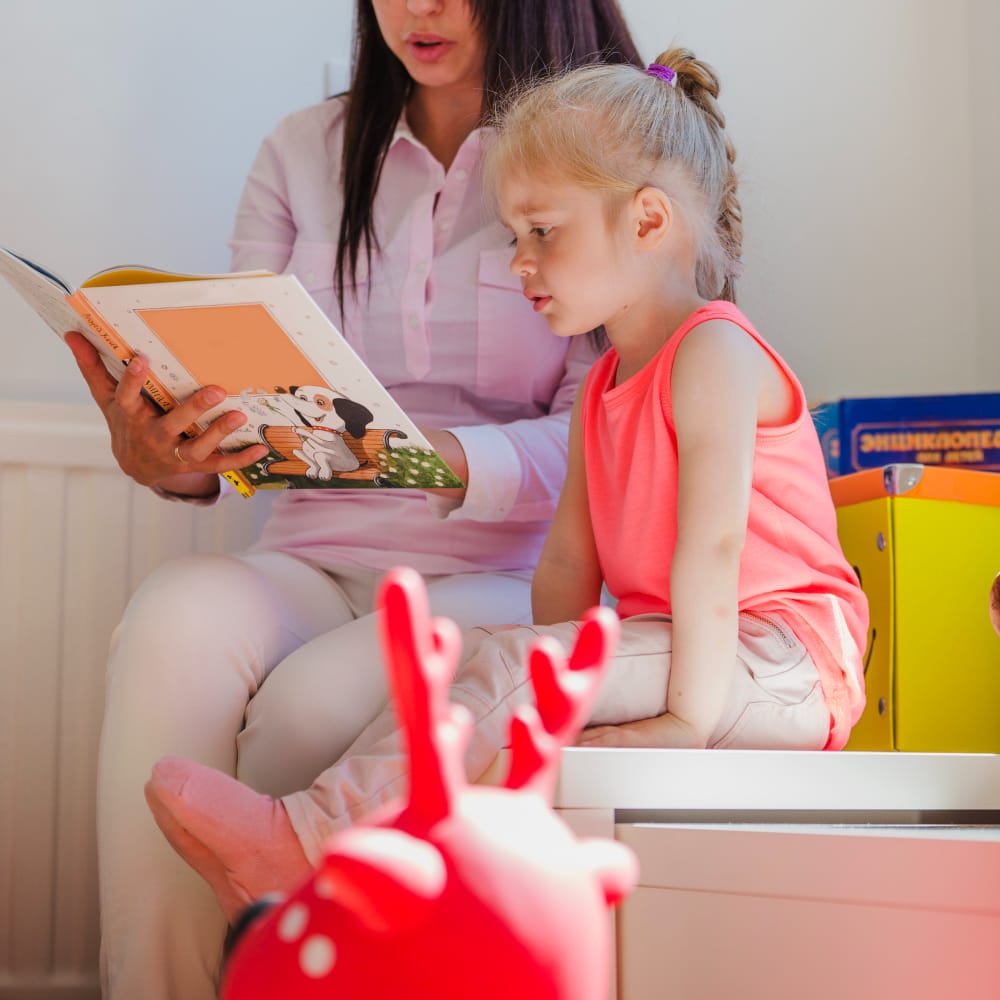
Here are some reading games to play with your preschool kids:
- I spy: play I-spy to introduce phonics, ensuring that you use the letter sound and not the name, for example, ‘ah’ (a), ‘buh’ (b), ‘cuh’ (c), rather than ‘Ay’ (A) ‘Bee’(B), ‘See’(C). The game goes like this: “I spy with my little eye, something beginning with ‘d’” and your child must name the things she can see that begin with the ‘d’ sound.
- Rhyming games: “find something in the lounge that rhymes with fish”. Kids love to play this reading game from the age of 4 or so.
- Alphabet cards: buy or create a set of alphabet cards that have the alphabet written as the letter names on one side (A B C) and the letter sounds on the other (a b c) – it may be useful to have a picture that goes with the relevant sounds and use them to play card games, such as Snap. As your child becomes more proficient, have two sets and play pairs with them where you encourage them to match the lower case letters (the sounds a, b, c, etc.) to the upper case or letter name (A, B, C, etc.)
- Scramble up letters of the alphabet and as your child recites the alphabet in the correct order, look for the correct letter and put them in order. Alternatively, have the letters in order and call on letters for your child to identify. Take letters out and see if he can determine which ones are missing
- Select a letter per day and have your child try to identify that letter throughout the day – on product packaging, in books, magazines, sign posts, shop names, etc. Initially you could give them the letter written on a piece of paper
- Give your child a letter, such as ‘h’ and page through a magazine encouraging them to identify as many pictures as they can that begin with that letter, such as horse, house, hotel, hamburger, etc. Make sure the picture chosen matches the correct sound of the letter initially, so don’t choose ‘angel’ for the letter ‘a’ for instance.
- The alphabet game. This can be started as early as age 3 with just reciting the alphabet going back and forth between parent and child (in the car is always a good opportunity for this). As your child masters the alphabet then the game can be played with words going back and forth, such as, apple, bread, cat, dog, etc. Further still, you can restrict the words to one category, such as foods, animals, boys’ names, etc. or you can select single syllable words, followed by double syllables.
- Let your child create her own book with one alphabet letter on each page and she must cut pictures from a magazine or draw pictures of objects that start with that letter.
- Ask him to identify what sound a particular picture begins with (he must not name the picture) and then he must name as many other words beginning with the same sound, for example, a picture of a mouse, he identifies ‘m’ and then lists man, monkey, moose and magazine, for example.
- Story sequencing: The object of this game is for players to rearrange cut up comic strip pictures in the correct order, as this will strengthen their sequencing ability (necessary for reading) and their comprehension skills. There are also games on the market that you can buy to do this with as well, but comics tend to be more fun. As your children get older, choose strips with (more) words or give them three strips of the same character all mixed together that they need to organise into three stories. Can they use the existing pictures in a different order to create a new story? Let your younger children tell their own story of the pictures.
- Phonemic awareness is important and you can play games with your child that involve breaking up and altering words, for example
- Say coolbox, now say it without saying ‘cool’ (or ‘box’) or butterfly without the fly
- Say cucumber without the ‘cum’ (therefore they must say cu-ber)
- Say night without the ‘n’ sound (ight)
- What sound can you hear in ‘date’ that it not in ‘ate’? (d)
- If you added ‘m’ to the beginning of ‘eat what would you have? (meat)
- If you added ‘k’ to the end of ‘stay’ what would you have? (stake)
- Create one-syllable words (initially) with letters and encourage your child to sound them out, such as jun, vut, des, etc. progressing to two and more syllables as their skill develops. You could also help your child create definitions for the made up words, just to add an element of amusement to the game but also to develop their comprehension and reasoning skills
Reading games for preschool kids is very important in early literacy development and in helping your child develop good reading skills later on. Remember to keep it fun and light!
Related articles:



